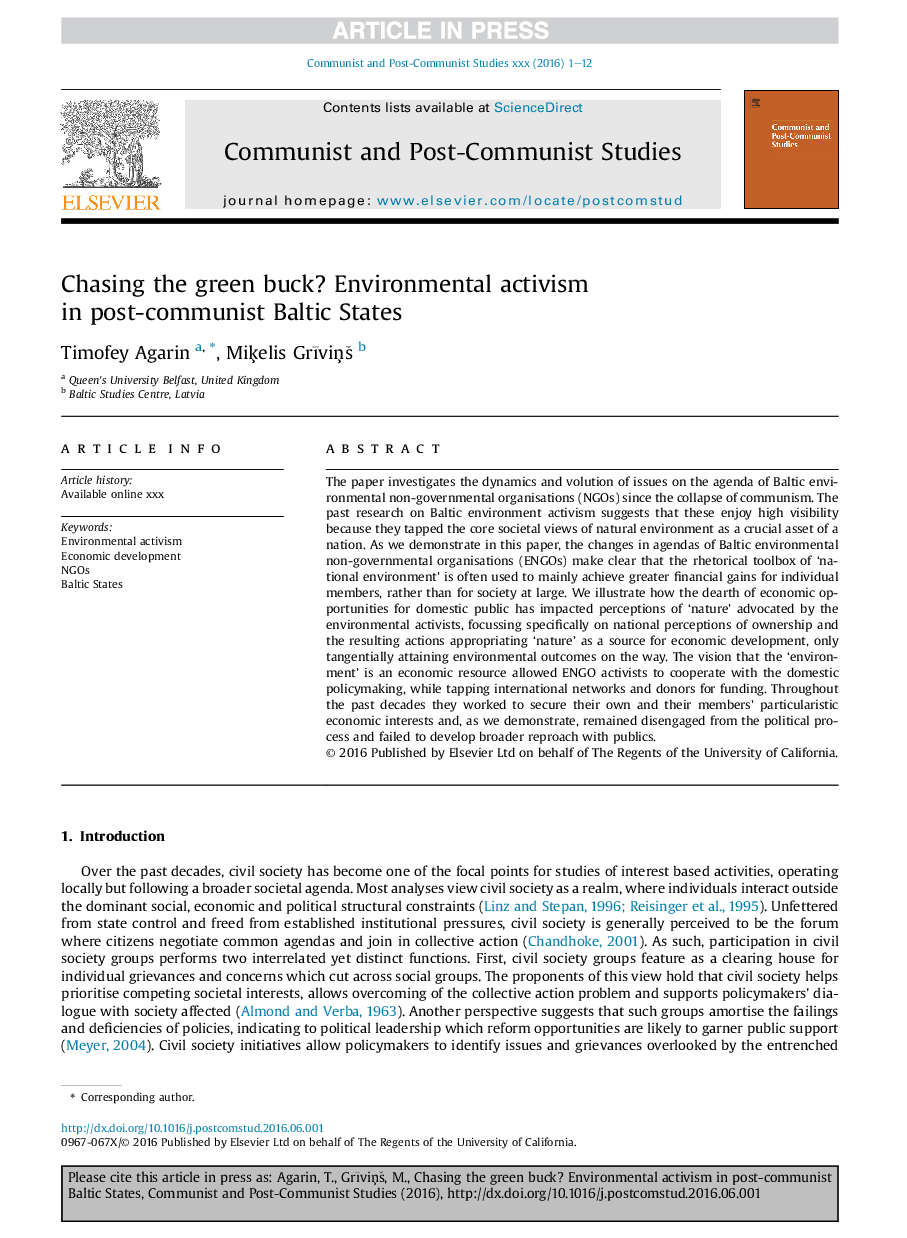| Article ID | Journal | Published Year | Pages | File Type |
|---|---|---|---|---|
| 5114288 | Communist and Post-Communist Studies | 2016 | 12 Pages |
Abstract
The paper investigates the dynamics and volution of issues on the agenda of Baltic environmental non-governmental organisations (NGOs) since the collapse of communism. The past research on Baltic environment activism suggests that these enjoy high visibility because they tapped the core societal views of natural environment as a crucial asset of a nation. As we demonstrate in this paper, the changes in agendas of Baltic environmental non-governmental organisations (ENGOs) make clear that the rhetorical toolbox of 'national environment' is often used to mainly achieve greater financial gains for individual members, rather than for society at large. We illustrate how the dearth of economic opportunities for domestic public has impacted perceptions of 'nature' advocated by the environmental activists, focussing specifically on national perceptions of ownership and the resulting actions appropriating 'nature' as a source for economic development, only tangentially attaining environmental outcomes on the way. The vision that the 'environment' is an economic resource allowed ENGO activists to cooperate with the domestic policymaking, while tapping international networks and donors for funding. Throughout the past decades they worked to secure their own and their members' particularistic economic interests and, as we demonstrate, remained disengaged from the political process and failed to develop broader reproach with publics.
Related Topics
Social Sciences and Humanities
Social Sciences
Development
Authors
Timofey Agarin, MiÄ·elis GrÄ«viÅÅ¡,
